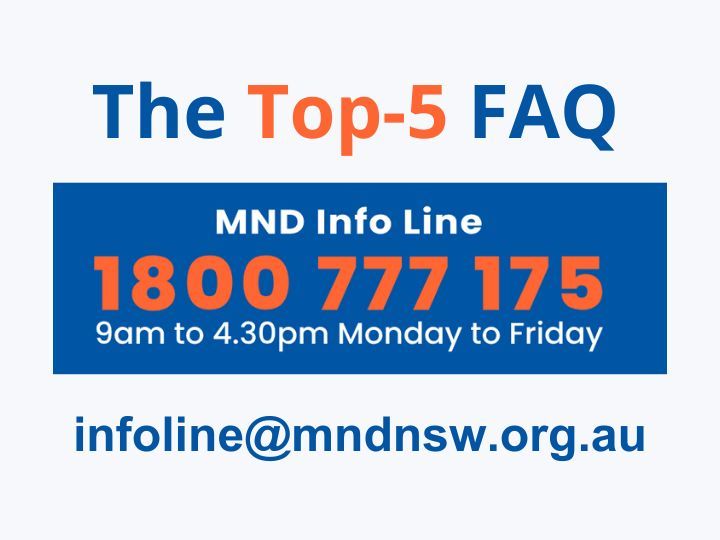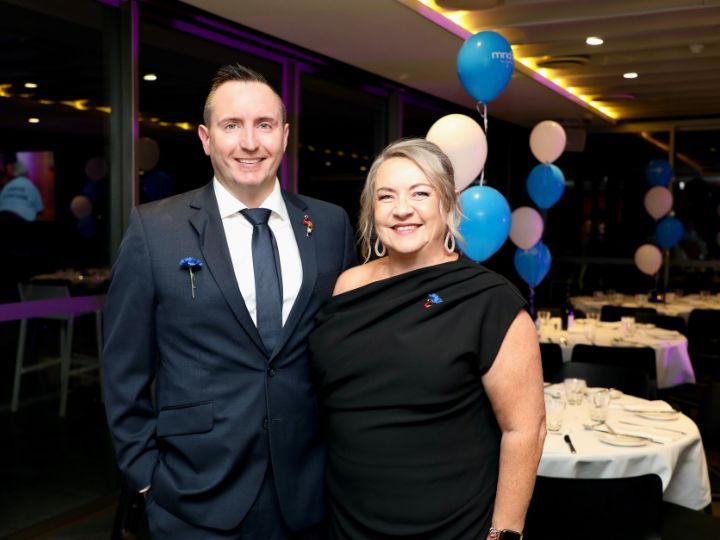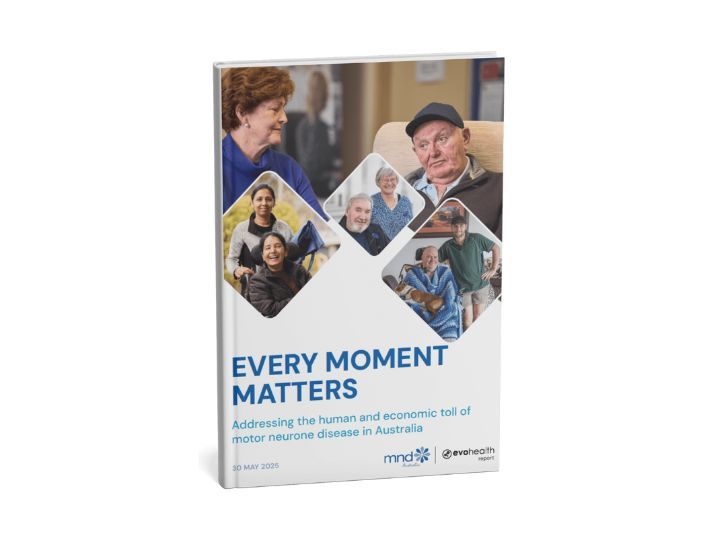Welcome to this month’s insights from the MND NSW Info Line! Each month the MND NSW Info Line responds to hundreds of enquires from people living with MND, their families, carers and health professionals.
We have rounded up the top 5 questions we’ve been asked lately from across NSW, ACT and NT. From managing thick saliva to non-invasive ventilation, these are the answers you have been looking for.
Question 1: What is Non-invasive Ventilation?
Answer
As MND progresses, the muscles that help you breathe can become weaker. These muscles are called the respiratory muscles. The breaths you take become shallower which means less oxygen is absorbed into the blood. Non-invasive Ventilation (NIV) is a commonly used strategy to support breathing. It involves wearing a mask over nose and/or mouth and is connected to a small pump, called a bi-pap machine. This helps to keep your airways open by supporting the inhale and exhale.
According to MND Australia, using NIV can reduce breathlessness and improve sleep quality. Research suggests that NIV can increase survival time by up to 13 months
Learn more
We recommend early referral to a respiratory specialist after receiving a diagnosis of MND. Contact your GP for a referral to a respiratory specialist or your MND clinic. However, more information can be found in the links below.
- Breathing Support & Motor Neurone Disease
- Watch practical videos - Non Invasive Ventilation and MND
- Breathing & MND Factsheet: Medications & NIV | MND Australia
Question 2: I am a NDIS participant, what happens when I turn 65?
Answer
Your NDIS supports do not change when you turn 65 years of age.
A person must submit a NDIS access request before they turn 65 years of age. If you make access to the NDIS scheme prior to 65, then you can choose to remain supported by the NDIS, given you continue to meet the eligibility requirements. This means you can continue with your choice of providers and your preferred support workers.
The situation is more complicated if you move into a residential aged care service permanently for the first time after you turn 65. Your support coordinator can help you explore your options.
Learn more
More information can be found in the link below
Question 3: How is genetic testing for MND conducted?
Answer
Genetic testing can help determine whether familial MND is present in your genes. It is typically recommended when there is a family history of MND. Not everyone who inherits an MND-related gene will develop the condition. Testing is always voluntary.
How it works:
- Ask your GP for a referral to a genetic counsellor who can explain the process and potential risks.
- Analysis of a blood sample for gene mutations related to MND such as SOD1
- A genetic counsellor will guide you through what the results mean for you and your family.
Learn more
More information can be found:
Questions 4: I am experiencing thick saliva, what are some ways I can manage this?
Answer
Approximately 50% of people with MND can experience thick or ropey saliva due to a weakness in the swallowing muscles. MND does not cause you to produce more saliva. Difficulty swallowing, changes in diet, hydration and medications amongst other factors can exacerbate saliva management issues and cause thick saliva.
Top tips:
- Stay hydrated
- Try natural remedies including sipping or sucking ice cubes of dark grape juice or papaya juice. There is also a papaya enzyme tablet some people find helpful in breaking down thick saliva
- Use humidification nebulizers to help moisten airways
- Adjusting your posture can help to clear saliva more effectively.
Learn more
Talking to your GP or speech pathologist is also recommended to find solutions that are right for you. Always consult your health care team before implementing new strategies and trying natural remedies.
More information can be found in the links below
- Eating, Drinking & Swallowing with MND
- Watch practical videos - Managing saliva problems in Motor Neurone Disease (MND) | Royal Brisbane and Women's Hospital
Question 5: How can I stay connected socially as my physical condition changes?
Answer
Staying socially connected is important for your well-being and overall mental health. Social connection doesn’t have to mean large groups or long chats. Short, meaningful moments are just as important. MND can affect your mobility, speech and energy so it is important to find accessible ways to stay connected.
Top tips:
- Consider online social activities such as online support groups or video chats with friends
- Pacing yourself in order to manage fatigue
- Use communication aids if speech is difficult.
Learn more
Talking to your OT, speech pathologist, or psychologist is also recommended to find solutions that are right for you. More information can be found in the links below
- Living with MND: Friends & Relationships | MND Australia
- Mental Health & Motor Neurone Disease | MND Australia
Do you have a question about MND?
Whether you’re newly diagnosed, caring for a loved one, or navigating the MND space as a health professional, we’re here to help.
Call us on 1800 777 175
Or submit and online inquiry at Contact MND NSW
“We can't do this alone. But together, we're unstoppable.”
MND Community Member



